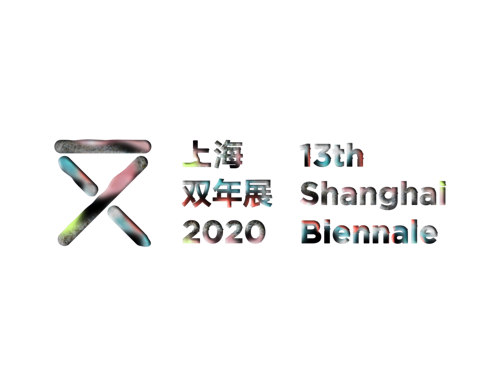A series of 9 sound pieces by the 13th Shanghai Biennale
June 2–July 25, 2021
Power Station of Art
No.678 Miaojiang Road, Huangpu District
200011 Shanghai
China
T +86 21 3110 8550
biennale@powerstationofart.com
Bodies exceed humanity. They remind us that we are part of something vaster—and smaller—more complex, more connected than our mere existence as an atomized species. Our bodies, and bodies in general, are composed out of heterogeneity and multitudes. All bodies are wet collective bodies, defined by how they link to other bodies, places, environments, technologies. Think of breathing, clogging, decomposing, discharging, flushing, lubricating, melting, menstruating, transfusing. Bodies exist as trans- and extra-territorial beings. They live in hybridity. This porous condition produces a planetary wet-togetherness, a “commoning” force that constitutes all bodies as collective hydro-subjects.
Wet-Togetherness is a collaboration between e-flux and the 13th Shanghai Biennale, Bodies of Water, curated by Andrés Jaque, Marina Otero Verzier, Lucia Pietroiusti, Filipa Ramos and YOU Mi, and organized and promoted by the Power Station of Art. It consists of 9 sound pieces in which 21 artists, activists and researchers enact aqueousness through sound. The series has been edited by José Luis Espejo and Rubén Coll with the sound design of Tomoko Sauvage, coordination by Roberto González García, and locutions by Yang Yang.
Episode 1. Menstruating: Cecilia Vicuña
Release date: June 2, 2021
Menstrual fluids are carriers of taboos, gender stereotypes, social behaviours, notions of life and death, purity and uncleanliness. Their symbolism connects bodies to the moon, mountains, rivers, and goddesses. Menstruating involves both synchronicity with the cosmos and forms of earthly solidarity.
Episode 2. Decomposing: Daisy Bisenieks and Royce Ng (Zheng Mahler) and Tuo Wang
Release date: June 2, 2021
Organic bodies break down and decay, aided by other bodies. As microorganisms feed on dead plants, and animal and human remains, they deconstruct intricate life forms into their simplest components. Water, carbon dioxide and nutrients are building blocks of earth beings and their socio-natural collectives. We are in a continuous process of body breaking and making.
Episode 3. Flushing: Hao Pei Chu and Liam Young
Release date: June 2, 2021
Pipes connect our bodies with larger ecosystems. They help dispose of and relocate sewage while sustaining the image of its disappearance. Pipes enact the apparent separation between humans and their waste. They are part of the physiological trait, for they help us get rid of that which we no longer want to recognize as ours.
Episode 4. Breathing: Torkwase Dyson and Itziar Okariz
Release date: June 15, 2021
Seemingly a banal act of taking air into the lungs and releasing it, breathing connects bodies to other bodies, bodies to the atmosphere. In breathing, bodies enact their existence and their interdependence across territories and identities. Yet breathing is too often unequally distributed, and the deprivation of air itself reminds us of the contentious, violent relations dictating the right to life.
Episode 5. Melting: Cao Minghao and Chen Jianjun and Michael Wang
Release date: June 15, 2021
It is precisely at the melting point of a pure substance that solid and liquid forms coexist and produce each other. Glaciers and seas. Mountains and rivers. Molten rocks, soils and climates. Entire worlds—several hundred to several thousand years old—melt into other worlds making unexpected currents, struggles, and living conditions emerge.
Episode 6. Transfusing: Iván L. Munuera, P. Staff and Himali Singh Soin
Release date: June 15, 2021
Bodies are permeable. They exist in continuous fluid exchange with other bodies. Yet fluids circulate differently than the bodies to which they once belonged. They pass from one body to another body, merging stories, fates, futures; they infuse health, life, or their opposite; fluids replace components; they add something that is lacking or is desired. Fluids are given, passed onto, injected, poured, infiltrated in a sometimes unavowed hydro commons.
Episode 7. Clogging: Ibiye Camp and Vera Frenkel
Release date June 28, 2021
Material power resides in the containment and control of flows. Far from avoiding friction, it is precisely the disruptions and systemic imbalances in that flow that keep the system running and allow for uneven forms of distribution, accumulation and advantage. Latency, clogging, inertia, and slowness are instruments to both enact and challenge power.
Episode 8. Discharging: Cyan Cheng, Marco Ferrari and Elise Hunchuck
Release date: June 28, 2021
Rainmaking is a long-lasting human dream. Triggering water precipitation in air to combat water scarcity, drought and global warming has driven spiritual cultural practices, scientific studies and territorial conflicts. It has materialized in countless ceremonies, rituals and other technologically enabled practices. Human ambition to tame the environment drives the proliferation of contemporary cloud seeding programs, which speaks about the political, ecological and social consequences of the extraction of what is common.
Episode 9. Lubricating: Tabita Rezaire and Aiwen Yin
Release date June 28, 2021
Smoothness drives contemporary technological regimes: frictionless experiences, immediate gratifications, a promise of a world of flows without disruption. We are enchanted by a slippery seamlessness, mediated by sleek surfaces. A visual order accommodating the idea that the world, and capital, run painlessly. An order enabling control over collective imaginations, bodies and natural resources. One that oils the relentless infrastructural libido.


